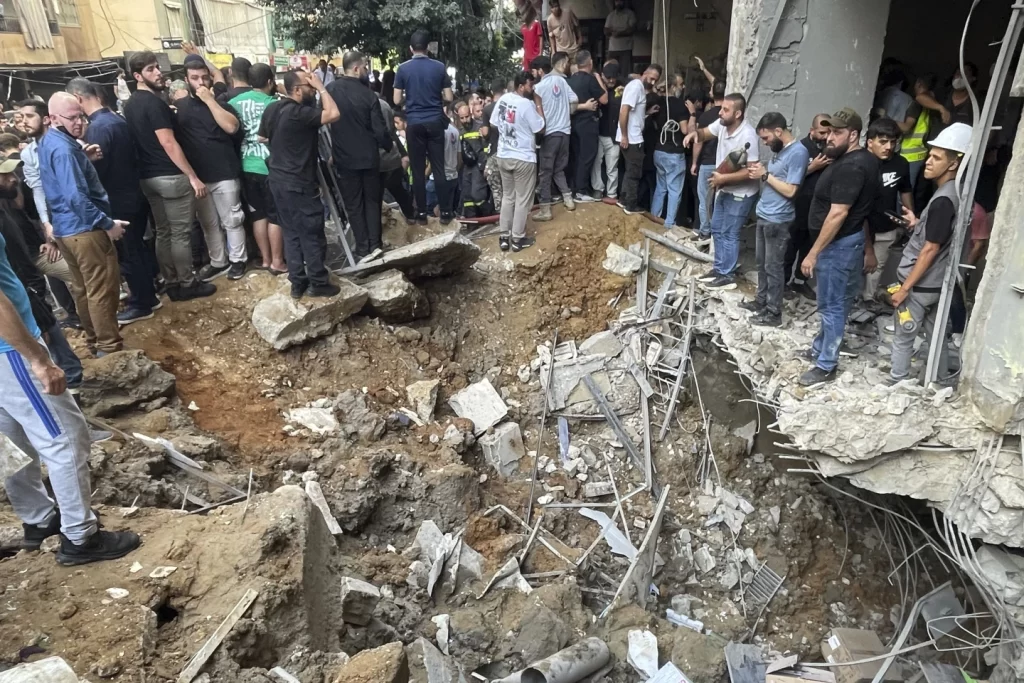Israel announced Friday that its airstrike in southern Beirut successfully eliminated a high-ranking Hezbollah military commander, while Lebanese authorities reported that at least 12 people were killed in the attack.

The Israeli military’s chief spokesman, Rear Adm. Daniel Hagari, stated that the strike targeted and killed Ibrahim Akil, a commander of Hezbollah’s elite Radwan Force, along with 10 other operatives. Akil, according to Israeli intelligence, was a member of Hezbollah’s highest military body, the Jihad Council, and had been sanctioned by the United States for alleged involvement in 1980s terrorist attacks against U.S. targets in Lebanon.
Lebanon’s Health Ministry, however, reported a higher death toll, stating that 12 people were killed and 66 others wounded, with nine in serious condition. The discrepancy in the reported casualties has not been immediately reconciled.

The strike, which hit Beirut’s densely populated Dahiya district during rush hour, flattened two apartment buildings in an area known for Hezbollah’s political and security operations. It marks a significant escalation in the ongoing conflict between Israel and Hezbollah, being the deadliest such attack on Beirut since the 2006 war between the two sides.
Hezbollah has not yet confirmed Akil’s death. An unnamed Hezbollah official stated that Akil was supposed to be in the targeted building but provided no further details.

The attack came hours after Hezbollah launched 140 rockets into northern Israel, which the group claimed was retaliation for previous Israeli strikes on southern Lebanon. This exchange follows a week of heightened tensions, including explosions that destroyed thousands of Hezbollah communication devices, killing at least 20 people.

Israeli forces have moved additional troops to the northern border, and the country’s security cabinet has made the return of displaced residents to northern Israel an official war goal. Hezbollah leader Hassan Nasrallah had previously vowed to continue strikes against Israel despite recent setbacks.
As both sides exchange fire, concerns grow about the potential for a wider regional conflict. The international community watches closely as diplomatic efforts to de-escalate the situation appear to have little effect thus far.



